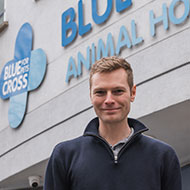AHT scientist says luck in breakthroughs needed The Animal Health Trust (AHT) has said a solution to Seasonal Canine Illness (SCI) could be years away.
SCI occurs during the autumn months and has killed dozens of dogs since the condition was first identified in 2009. Clinical signs are symptoms of vomiting and diarrhoea, which are non-specific and have a wide range of causes that animals often recover from.
The AHT has been focusing on five hotspot areas for the illness in Norfolk, Nottinghamshire and Suffolk. Further data has also been compiled, such as from online questionnaires.
Suggested causes include accidental poisoning, blue-green algae, bracken spores, fungi and harvest mites; but despite ongoing research, its cause remains a mystery.
Richard Newton, head of epidemiology and disease surveillance at the AHT, said: "It has only been in the past two seasons we have been looking at this. At this stage, saying how long it will take to solve this problem is difficult.
"The Kennel Club has been very important in helping us. If we can keep that funding, I would hope we might have it cracked in a couple of years. We might need a bit of luck in making those breakthroughs in that timescale, but we really want to stick at it."
Dr Newton added that finding the agent causing SCI was proving difficult, as the unknown toxins are difficult to identify when you are not sure what you are looking for.
The AHT are working with numerous organisations to find a solution to SCI, including the Health Protection Agency (HPA), the AHVLA and the Food and Environment Research Agency (FERA).
"This was always going to be a team effort," said Dr Newton.






 The latest
The latest 
